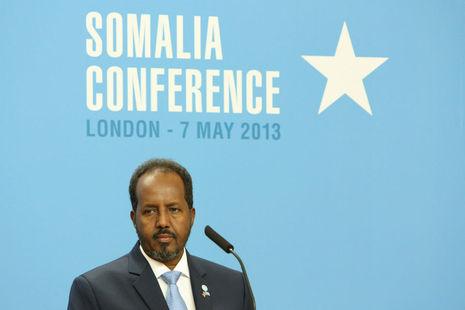Sudan and South Sudan: Reviewing the 2012 Addis Ababa Peace Agreements (part II) – By Aly Verjee

Part one of this article examined the details of the security and border protocols agreed in the new Cooperation Agreement between Sudan and South Sudan. To conclude this piece, I want to consider elements of some of the other protocols, where there are important and (so far) mostly unheralded achievements, but where there are also explicit limitations, effectively guaranteeing future uncertainty between the two states.
The mobility and residency agreement, more commonly known as the four freedoms agreement for the freedom of residence, freedom of movement, freedom to undertake economic activity and the freedom to acquire and dispose of property, applies to Sudanese nationals resident in or visiting South Sudan, and South Sudanese nationals resident in or visiting Sudan. The agreement does not address citizenship, nor does it prevent loss of nationality. It does, however, provide an important protection for those who currently live, study or have property across the border, in section 4 (2): “A person who has already exercised any of the freedoms conferred by this Agreement shall not be deprived of that freedom by reason of the amendment or termination of this Agreement.”
This clause would seem to end the possibility of any future, legal revocation of four freedom rights. However, it is not completely satisfactory: it does not set a standard for what would constitute active exercise of each freedom, nor does it protect the rights of future generations, in the event that the agreement is terminated one day. The agreement does state that a more detailed agreement will be drawn up to “elaborate the above freedoms,” based on an AUHIP draft.
The four freedoms agreement can be terminated quickly: after 30 days, if there is mutual consent, or after 60 days, by either party. SPLM Secretary-General Pagan Amum has spun this as a positive point, stating “if South Sudan sees that it [the agreement] is not in their interest, they [we] can cancel it in 60 days.” Such short-termism is dangerous. In the case of the Sudans, is a path with unhappy historical antecedents.
The oil agreement also has time limitations. Section 6 (1.6) and (2.2) allow for the agreement to be terminated if the other party has committed a specific “material breach” and has failed to remedy the breach within 60 days written notice from the other party. In such an event, the agreement can be terminated on a mere seven days written notice.
For the agreement to be cancelled in this way may be unlikely, especially after the first oil shutdown, an experience neither side wishes to repeat. But can it be an exaggeration to say that a future bilateral relationship dependent on such terms is precarious?
Even if Sudan and South Sudan can implement the oil deal as agreed, a new deal will eventually be needed. Section 22 (1) states that the “Agreement shall remain in force for a period of three years and six months as from the date when the first GoRSS [South Sudan] Oil Entitlement Volumes have been redelivered and lifted at the marine terminal and a bill of lading has been issued.” Assuming South Sudan can resume production and delivery by early 2013, a new oil deal will be needed by mid 2016.
The trade and banking agreements provide more cause for optimism. The trade agreement sets as a goal the establishment of trade terms between Sudan and South Sudan that are consistent with the Common Market for Eastern and Southern Africa (COMESA). A Joint Ministerial Committee on Trade Relations and a Joint Technical Committee on Trade Relations are to be formed to oversee trade policy.
The banking agreement guarantees the right of commercial banks to operate in the other state’s territory, and resumes cooperation between the two central banks, the Central Bank of Sudan and the Bank of South Sudan, through a new Joint Central Banks Committee.
In the Agreement on Certain Economic Matters, South Sudan has agreed to help in Sudan’s search for international debt relief. If debt relief for Sudan is not forthcoming, then South Sudan will take on a proportion of Sudan’s existing debt, the amount determined subject to future negotiations. This protocol also covers national archives and cultural property, providing for future cooperation on both subjects, and repatriation of property of particular cultural and archival importance, without financial compensation from either side.
Both the parliaments of Sudan and South Sudan have now ratified the Cooperation Agreement. The test of implementation has now arrived, even as public and media reaction to the agreements remains mixed. AUHIP Mediator Thabo Mbeki appears irritated: “It is very shameful and embarrassing that, to the contrary, the bulk of our media essentially ignored the signing of the Sudan-South Sudan Cooperation Agreement, treating this immensely important African development virtually as a non-event.” The coming months will show if Mbeki’s indignation is well placed. Khartoum and Juba, over to you.
Aly Verjee is senior researcher at the Rift Valley Institute.






